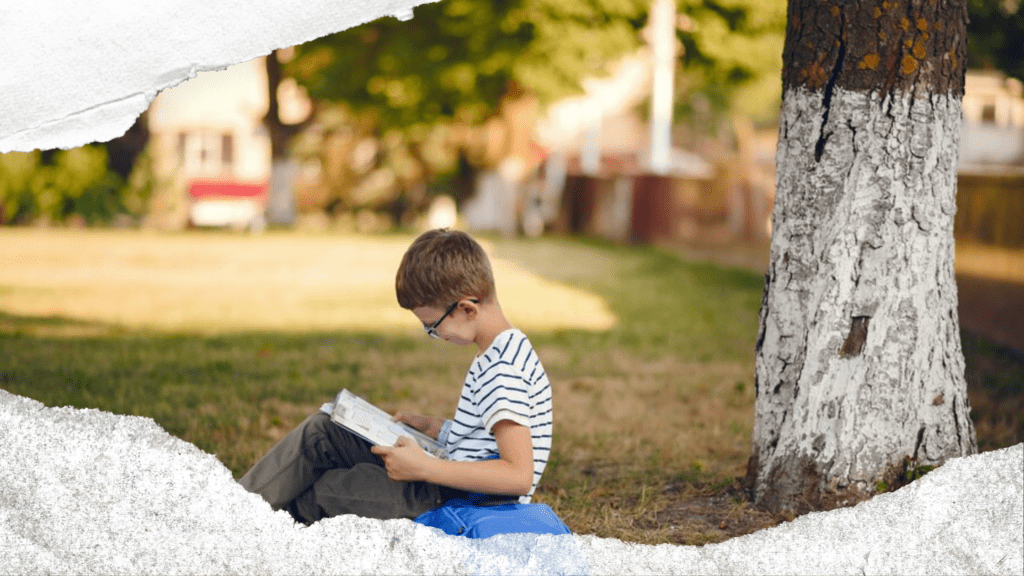The Benefits of Outdoor Learning in Nature


As parents and caregivers, we pursue what’s best for our children’s growth, educationally, physically, and emotionally. What if the answer lies just outside our doors?
Research supporting the benefits of learning outdoors in nature is becoming more and more relevant in the recent educational discourse, which is pushing all of us to consider the great outdoors as a crucial part of every child’s learning journey.
Waiting outside your window is a salient classroom holding endless opportunities for your child’s holistic development. Wind, trees, wildlife, and even dirt invites children to explore, provoke curiosity, and engage in a distinct kind of learning. They are all an invitation to explore the significant merits of outdoor learning.
Research overwhelmingly supports the idea that learning outdoors in nature provides numerous cognitive benefits for children.
– Enhanced Concentration and Focus Studies show exposure to nature improves children’s concentration and focus. Being surrounded by nature helps reduce mental fatigue and increase attention span. This can lead to better academic performance and improved study habits.
– Improved Problem-Solving Skills Outdoor learning involves hands-on activities and exploration, which enhance children’s problem-solving skills. When faced with challenges in natural settings, such as figuring out how to navigate a new trail or identify different plant species, children are encouraged to think creatively and critically.
– Increased Cognitive Flexibility Engaging with the unpredictability of the natural world promotes cognitive flexibility in children. Adapting to changing weather conditions, exploring diverse ecosystems, and encountering new experiences outdoors helps children develop a broader perspective and adaptability in their thinking. This flexibility is crucial for cognitive development and can support children in navigating complex learning tasks.
– Heightened Sensory Development Outdoor environments offer a rich sensory experience for children, allowing them to engage all their senses in learning. From feeling different textures of leaves and rocks to smelling the scents of flowers and trees, outdoor settings stimulate children’s senses in ways that indoor classrooms cannot. This leads to improved sensory processing and cognitive development.
– Enhanced Memory Retention Being immersed in nature has been linked to improved memory retention in children. The multi-sensory experiences gained outdoors help children form lasting memories of what they learn. Whether it’s observing wildlife, listening to bird songs, or exploring natural phenomena, these memorable experiences can strengthen neural pathways associated with memory formation and retrieval. By incorporating outdoor education into your child’s learning journey, you provide valuable opportunities to improve concentration, problem-solving skills, cognitive flexibility, sensory development, and memory retention.
Encouraging outdoor exploration leads to a deeper appreciation for the natural world in your child’s life. Emotional and behavioral improvements are also linked to nature-based education. Nature-based education has gained attention for its positive impact on children’s well-being, including their mental health, social skills, and overall behavior.
One key study supporting learning outdoors was conducted by the National Wildlife Federation. They found children who engage in outdoor learning show significant improvements in their emotional regulation and behavioral responses. Exposure to natural environments not only reduces stress and anxiety but also enhances children’s ability to focus and concentrate.
A study published in the International Journal of Environmental Research and Public Health highlights the positive effects of nature-based education on social interactions among children. By engaging in outdoor activities, children develop stronger interpersonal skills, such as cooperation, communication, and empathy.
Outdoor education reduces disruptive behaviors in children. Research has demonstrated incorporating outdoor learning experiences can lead to a decrease in behavior problems among students. Spending time in green spaces and participating in hands-on activities in nature promotes emotional resilience in children.
As parents, educators, and caregivers, it is crucial to recognize the significant role that nature plays in children’s emotional and behavioral development. Nature-based education provides a holistic approach to learning that nurtures children’s minds, bodies, and spirits, creating a foundation for their future success and happiness.
Hands on learning experiences are as important to children as book and digital learning, if not more important. By exploring the natural world, children are encouraged to ask questions, make observations, and draw connections, which ultimately strengthens their cognitive abilities.
There is also great benefit to the physical activity children enjoy while learning outdoors. Research indicates regular physical activity is essential for overall health and plays a crucial role in cognitive development. When children engage in active learning outdoors, such as exploring nature trails, participating in scavenger hunts, or conducting outdoor experiments, they are simultaneously enhancing their physical and mental well-being.
Overall, the benefits of learning outdoors in nature is clear and compelling. By embracing outdoor classroom settings, parents can provide their children with a holistic learning experience that nurtures academic growth, cognitive development, physical health, and emotional well- being. Encouraging your child to explore the wonders of nature can enrich their educational journey and set a strong foundation for future academic success.
The benefits are backed by science, and the memories made will last a lifetime.








Responses